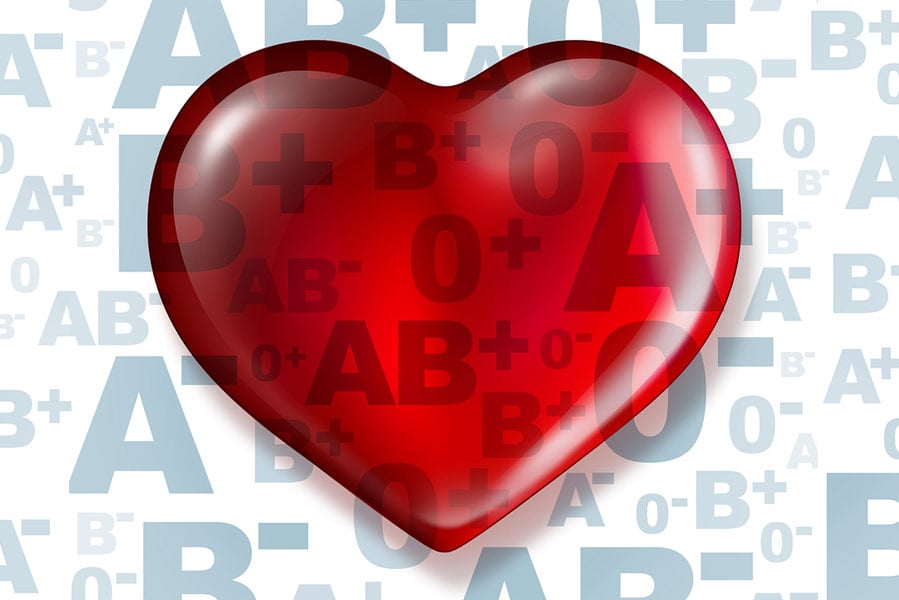Blood cancer symptoms everybody needs to know
Every 20 minutes, someone in the UK is diagnosed with a form of blood cancer, such as leukaemia or lymphoma. It’s the fifth most common cancer, and the third biggest cause of cancer deaths.
Yet warning signs of blood cancers can be so unlike those of other cancers, that it’s often diagnosed at a very late stage. Research by the blood cancer charity Bloodwise (bloodwise.org.uk) found more than a third of people with blood cancer had to visit their GP three or more times with symptoms before being referred to hospital. This makes it the worst performing cancer in terms of early diagnosis, the charity says.
Why is it so difficult to spot? Well, blood cancers, which stop blood stem cells from working normally and can make you weak and prone to infections, have three main types with many different variations. These variations have numerous diverse symptoms, which can often be mistaken for other less serious conditions.
“Not all signs of blood cancer are easily identifiable, or are associated with typical symptoms of cancer, such as a lump or abnormal mole,” explains haematologist Dr Manos Nikolousis, a medical consultant with the blood cancer charity DKMS (dkms.org.uk).
“Blood cancer often presents in ways which are most commonly associated with unrelated and less serious illnesses, like a cold or flu. In other circumstances, patients notice a change in their body which they can’t quite put their finger on.”
One of the treatments for blood cancer is a stem cell transplant that restores blood-forming stem cells in patients who’ve had theirs destroyed by very high doses of chemotherapy and/or radiotherapy. But Nikolousis points out that only one in three blood cancer patients who need a transplant will find a matching blood stem cell donor in their family. The remaining two-thirds have to rely on an unrelated donor, which significantly reduces their chance of finding a crucial match.
“The more people who register as potential blood stem cell donors, the better the chances of finding a donor for someone in need,” stresses Nikolousis, who points out that potential donors, who should be healthy and aged between 17-55, just need to sign up with DKMS online.
The charity will send a screening kit to obtain a swab from inside the donor’s cheeks. If they then prove to be a match for someone, 90% of donations are done by collecting blood and harvesting stem cells from it. The process is simple and could potentially save lives.
What else do you need to know about blood cancer? Here, Nikolousis outlines some blood cancer symptoms and warning signs…
1. Back pain
Musculoskeletal pain in muscles, joints, tendons, bones or structures that support the limbs, neck or back.
2. Bruising or bleeding
One of the most common symptoms associated with blood cancer is bruising, and/or bleeding. The frequency and lasting impact of bruising can be a key warning sign of blood cancer, so it’s important to book an appointment with your GP if this develops.
3. Fatigue
Unexplained and persistent tiredness is one of the biggest telltale signs of blood cancer. People who have cancer-related fatigue find it incredibly challenging to complete simple tasks that we tend to take for granted.
4. Swollen lymph nodes/glands
The lymph nodes are small lumps of tissue that contain white blood cells. When inflamed, they can be felt as lumps under the skin; most commonly in the neck, armpit or groin area.
5. Headaches
There may be new headaches that feel different to headaches previously experienced. They’re likely to occur frequently and be severe and long-lasting. They also often appear alongside other physical symptoms associated with blood cancer.
6. Stomach discomfort
Persistent abdominal discomfort, presenting as a sharp pain or a sense of feeling full.
7. Numbness in the hands or feet
This can be described as a feeling of pins and needles/numbness in the feet that moves up to the legs, or from fingers into the arms.
8. Heart palpitations
This can feel like a fluttering, a sudden thump or a fast pounding sensation in the chest. It can also be felt in the neck or ear when lying down.
9. Loss of concentration
There may be a prolonged or recurring inability to concentrate or focus, and people may describe this as feeling mentally drained or dizzy.
10. Sleep problems
Blood cancer patients may have continuous trouble falling asleep or staying asleep. This might result in a restless night’s sleep causing a feeling of extreme tiredness.
11. Itchy skin
Persistent, irritable and itchy skin. This may be experienced all over the body, or in isolated spots. Again, this symptom often appears alongside other physical symptoms associated with blood cancer.
Get it checked
These symptoms are very common and don’t automatically mean you have cancer. But if you notice any unusual or ongoing changes, it’s always best to see your doctor and get checked out sooner rather than later.
The Press Association
Latest posts by The Press Association (see all)
- 5 new books to read this week - November 23, 2024
- 3 easy Mary Berry recipes to make this season - November 22, 2024
- In Pictures: Party stalwart kept New Labour in touch with traditional supporters - November 21, 2024
- 6 easy indoor exercises to try this winter – and why they are good for you - November 19, 2024
- Martin Clunes: I can’t afford to retire – I’ve got too many horses - November 19, 2024





















